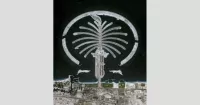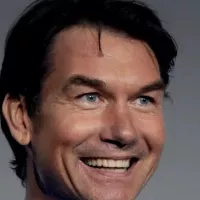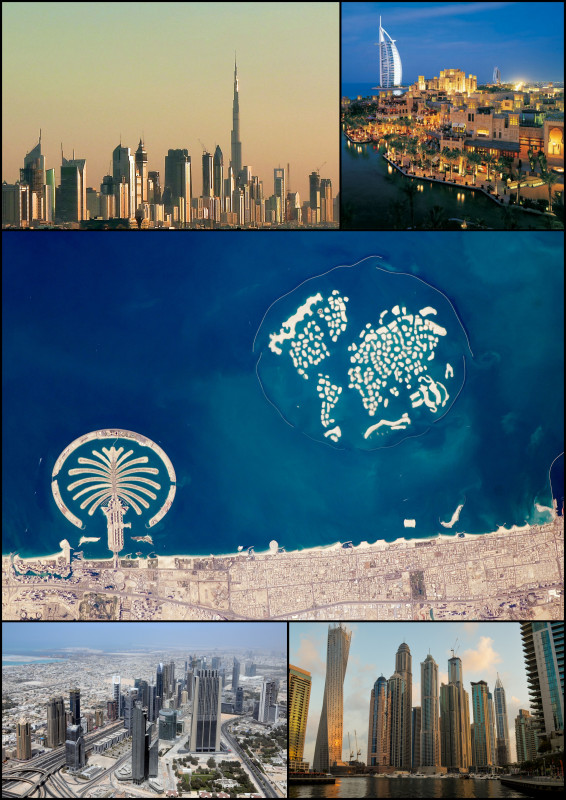Dubai is the most populous city in the United Arab Emirates, situated on the Persian Gulf's southeastern coast. Its population in 2025 is estimated at 4 million, with a significant expatriate community comprising 92% of the residents. The broader urban area, including Sharjah, has a population of 5 million (2023), while the Dubai–Sharjah–Ajman metropolitan area counts 6 million inhabitants.
1901: Dubai Declared a Free Port
In 1901, Dubai declared itself a free port, marking a significant step in its transformation into a regional trade hub.
1902: Increased Visits to Dubai by Bombay and Persia Steam Navigation Company
In 1902, the Bombay and Persia Steam Navigation Company's vessels made 21 visits to Dubai, indicating the growing importance of the port.
1904: Fortnightly Steamer Service to Dubai
From 1904 onwards, steamers called fortnightly at Dubai, further accelerating its role as an emerging port and trading hub.
1906: Dubai Trading Hub
By 1906, Dubai had supplanted Lingeh as the chief entrepôt of the Trucial States, trading 70,000 tons of cargo.
1908: The "Great Storm"
In 1908, the "great storm" struck the pearling boats of Dubai, resulting in the loss of a dozen boats and over 100 men, causing a major setback for the local economy.
1910: Hyacinth Incident
In 1910, the town of Dubai was bombarded by HMS Hyacinth, resulting in 37 deaths.
1911: Poverty in Dubai
In 1911, Butti lamented the misery and poverty raging among the people, leading to struggles, looting, and killings.
1937: Oil Exploration Contract Signed
In 1937, an oil exploration contract was signed, guaranteeing royalty rights for Dubai and concessionary payments to Sheikh Saeed bin Maktoum.
1947: Border Dispute War
In 1947, a border dispute between Dubai and Abu Dhabi escalated into war, requiring arbitration by the British government to cease hostilities.
1958: Sheikh Rashid's Rule
From 1958, Sheikh Rashid bin Saeed Al Maktoum used revenue from trading activities to build infrastructure, initially through loans from local merchants and the ruler of Kuwait.
1959: Construction of Dubai's First Airport
Construction of Dubai's first airport started on the northern edge of the town in 1959.
1959: Establishment of Dubai's First Telephone Company
In 1959, Dubai's first telephone company was established, 51% owned by IAL (International Aeradio Ltd) and 49% by Sheikh Rashid and local businessmen.
1959: Sheikh Rashid Invited Architect John Harris
In 1959, Sheikh Rashid invited architect John Harris to Dubai to discuss the parameters of a town plan to manage the burgeoning real estate market.
1959: Establishment of the Airlines Hotel
In 1959, the emirate's first hotel, the Airlines Hotel, was constructed, marking an early step in developing Dubai's hospitality sector.
May 1960: Harris Returned to Dubai with the Town Plan
In May 1960, architect John Harris returned to Dubai with the town plan, which he developed after receiving aerial photography of the city that spring.
September 1960: Opening of the Airport Terminal Building
In September 1960, the terminal building of Dubai's first airport opened for business.
April 1961: MV Dara Disaster
On 7 April 1961, the Dubai-based MV Dara was caught in high winds and an explosion occurred, resulting in the loss of 238 lives off Umm al-Quwain.
1961: British Engineering Firm Marking the Street System
By 1961, the British engineering firm Halcrow was marking the city street system as drawn in the plan and hardening designated ways with asphalt.
1961: Extension of the Creek
In 1961, Dubai extended the Creek, further enhancing its capacity for trade and maritime activities.
1961: Iran Air Commences Services to Shiraz
In 1961, Iran Air commenced services to Shiraz, expanding Dubai's airport operations.
1961: Operational Networks
In 1961, both the electricity company and telephone company rolled out operational networks, improving infrastructure.
1962: Loan for Dubai Creek Bridge
In 1962, Sheikh Rashid approached his brother-in-law, the Ruler of Qatar, for a loan to build the first bridge crossing Dubai Creek.
1962: Expansion of Infrastructure
In 1962, the British Political Agent noted the building of new houses, offices and flats as well as the determination to press on with the construction of a jet airport.
May 1963: Completion of the First Bridge Crossing Dubai Creek
In May 1963, the first bridge crossing Dubai Creek was completed, financed by a toll levied on crossings.
1965: Construction of Dubai Airport's Asphalt Runway
In 1965, the asphalt runway of Dubai Airport was constructed, opening Dubai to both regional and long-haul traffic.
1966: Gold, Watches and Silver Imports
In 1966, Dubai imported a large amount of gold, watches and silver.
1966: Discovery of Oil in Dubai
In 1966, oil was discovered in territorial waters off Dubai, leading to an acceleration of infrastructure development plans and a construction boom.
1967: Gold Price
In 1967, the price of gold was $35 an ounce but its market price in India was $68 an ounce.
January 1968: Withdrawal of British Troops
On 16 January 1968, Prime Minister Harold Wilson announced that all British troops were to be withdrawn from "East of Aden", prompting negotiations to fill the political vacuum.
February 1968: Agreement on Principle of Union
On 18 February 1968, Sheikh Zayed of Abu Dhabi and Sheikh Rashid of Dubai agreed in Argoub Al Sedirah to work towards bringing other emirates into a union.
1968: Piped Water in Dubai
By 1968, Dubai had a reliable supply of piped water due to the construction of a pipeline from wells at Awir and a series of storage tanks by the water company, plus the brief imposition of a sand tax.
1968: Start of Construction Boom
From 1968 onwards, Dubai's discovery of oil accelerated infrastructure development plans, leading to a construction boom and an influx of foreign workers.
1968: Ambassador and Carlton Hotels
In 1968, the Ambassador and Carlton Hotels were constructed in Dubai, expanding the city's hospitality infrastructure.
1968: Dubai's Gold Trade
Throughout the 1960s Dubai was the centre of a lively gold trade, with 1968 imports of gold at some £56 million, which was re-exported.
October 1969: Nine-State Union Fails
In October 1969, British intervention at a meeting for the nine-state union resulted in Bahrain and Qatar dropping out of talks.
1969: Oil Revenue Flowing
From 1969 onwards, oil revenue supported a period of growth in Dubai, with Sheikh Rashid pursuing a policy of building infrastructure and diversifying the economy.
1970: Construction of New Airport Terminal Building
In 1970, a new airport terminal building was constructed which included Dubai's first duty-free shops.
July 1971: Agreement on Union
On 18 July 1971, six of the seven "trucial" emirates agreed on a union after Bahrain and Qatar dropped out of talks in 1969.
February 1972: Ras Al Khaimah joins the UAE
In February 1972, Ras Al Khaimah became the seventh emirate to join the United Arab Emirates, following Iran's annexation of the RAK-claimed Tunbs islands.
October 1972: Inauguration of Port Rashid
On 5 October 1972, Port Rashid, a deep-water free port, was inaugurated, facilitating a significant increase in shipping activities.
1975: Population Growth
Between 1968 and 1975, Dubai's population grew by over 300% due to the influx of foreign workers.
1975: Expansion of Port Rashid
In 1975, Port Rashid was further expanded to add 35 berths before the larger port of Jebel Ali was constructed.
1977: Dubai Hospital construction decision
In 1977, the decision to construct Dubai Hospital was made.
1979: Compromise Reached and Jebel Ali Port Established
In 1979, a formal compromise was reached, putting an end to border disputes between the emirates. Also in 1979, the Jebel Ali port was established, which is a deep-water port that can accommodate larger ships.
March 1983: Dubai Hospital Begins Admitting Patients
In March 1983, Dubai Hospital began admitting patients, marking a significant milestone after its construction decision in 1977.
1985: Establishment of the Jebel Ali Free Zone (JAFZA)
In 1985, Sheikh Mohammed initiated the JAFZA (Jebel Ali Free Zone) around the Jebel Ali port, facilitating the unrestricted import of labour and export of capital for foreign companies.
1990: Oil Contribution to GDP in Dubai
In 1990, oil accounted for 24% of Dubai's GDP.
1991: The Gulf War Impacts Dubai
In early 1991, the Gulf War had a negative financial impact on Dubai, with depositors and traders withdrawing money and trade. Dubai served as a refuelling base for allied forces at the Jebel Ali Free Zone during the Gulf War.
1995: Internet Introduced to Dubai
In 1995, Internet was introduced into the UAE, including Dubai, with a bandwidth of 7.5 Gbit/s and a capacity of 49 STM1 links.
December 1999: Opening of the Burj Al Arab hotel
In December 1999, the Burj Al Arab, a luxury hotel, opened.
2000: Establishment of Dubai Financial Market (DFM)
In 2000, the Dubai Financial Market (DFM) was established as a secondary market for trading securities and bonds.
2001: Construction of the Palm Jumeirah begins
In 2001, construction began on the Palm Jumeirah, an artificial archipelago.
2001: Property Depreciation
In November 2008, some properties in Dubai lost as much as 64% of their value since 2001.
2002: Electronic Transactions and Commerce Law Enacted
In 2002, Dubai enacted an Electronic Transactions and Commerce Law, addressing digital signatures and electronic registers, while Emirates Media and Internet reported that 76% of Internet users were male.
2002: Establishment of DMCC
In 2002, the Dubai Multi Commodities Centre (DMCC) was established.
2003: Dubai as a Refuelling Base During the Invasion of Iraq
During the 2003 Invasion of Iraq, Dubai served as a refuelling base for allied forces at the Jebel Ali Free Zone.
2003: Executive Authority Delegated to the Dubai Executive Council
Since 2003, executive authority of managing and overseeing Dubai Governmental agencies has been delegated to the Dubai Executive Council, led by the Crown Prince of Dubai Hamdan bin Mohammed Al Maktoum.
September 2004: Opening of the Dubai IFC
In September 2004, the Dubai International Financial Centre (IFC) opened, attracting leading international firms as a regional hub.
2004: Oil Contribution to GDP
By 2004, oil accounted for 7% of Dubai's GDP.
2004: Property Appreciation
From 2004 to 2006, Dubai saw property appreciation due to the government's decision to diversify the economy.
2004: Dubai International Film Festival Hosted
In 2004, the city of Dubai hosted the annual Dubai International Film Festival, which serves as a showcase for Arab and Middle Eastern filmmaking talent.
2004: Construction of Burj Khalifa begins
In 2004, the construction of the Burj Khalifa began.
2004: Announcement of Al Maktoum International Airport development
In 2004, the development of Al Maktoum International Airport was announced.
2005: Population of Metropolitan Dubai
In 2005, 84% of the population of metropolitan Dubai was foreign-born, with approximately half of them originating from India, significantly changing the city's cultural landscape.
2005: Formation of the Roads and Transport Authority (RTA)
In 2005, the Roads and Transport Authority (RTA) was formed by royal decree.
March 2006: Government Announces Steps to Allow Construction Unions
In March 2006, the government announced steps to allow construction unions in the UAE. UAE labor minister Ali al-Kaabi said, "Labourers will be allowed to form unions."
2006: DFM Trading volume
By the fourth quarter of 2006, the DFM's trading volume stood at about 400 billion shares, worth a total of $95 billion, with a market capitalisation of about $87 billion.
2006: Property Appreciation
From 2004 to 2006, Dubai saw property appreciation due to the government's decision to diversify the economy.
2006: Weekend Change in Dubai
In 2006, Dubai transitioned its weekend to Friday and Saturday to accommodate both Muslim religious practices and the Western weekend structure.
2006: Establishment of Emirates Integrated Telecommunications Company
In 2006, Emirates Integrated Telecommunications Company (EITC), better known as Du, was established, breaking Etisalat's virtual monopoly on telecommunication services in Dubai.
2006: Construction of the Palm Jumeirah completed
In 2006, construction of the Palm Jumeirah was completed.
2006: Construction of bus shelters announced
In 2006, the transport authority announced the construction of 500 air-conditioned passenger bus shelters, with plans for 1,000 more across the emirates.
2007: Dubai ranked among world's best financial cities
In 2007, a City Mayors survey ranked Dubai 44th among the world's best financial cities.
November 2008: Property Depreciation
In November 2008, some properties in Dubai lost as much as 64% of their value since 2001.
2008: Dubai's public bus transport system
In 2008, the public bus system in Dubai serviced 140 routes and transported over 109 million people.
2008: Emergence of Contemporary Art Galleries
Since 2008, contemporary art galleries like Carbon 12 Dubai, Green Art, gallery Isabelle van den Eynde, and The Third Line have established Dubai on the international art map.
February 2009: Dubai's Foreign Debt
As of February 2009, Dubai's foreign debt was estimated at $80 billion.
April 2009: Opening of the Palm Jumeirah Monorail
On 30 April 2009, a monorail line connecting the Palm Jumeirah to the mainland opened, becoming the first monorail in the Middle East.
September 2009: Opening of the Dubai Metro
In September 2009, the Dubai Metro, consisting of the Red and Green lines, was opened.
2009: Dubai School System Statistics
As of 2009, Dubai had 79 public schools run by the Ministry of Education and 207 private schools, with varying mediums of instruction based on the school type.
2009: Dubai Hosted 2009 Rugby World Cup Sevens
In 2009, Dubai hosted the 2009 Rugby World Cup Sevens, adding to its growing portfolio of international sporting events.
2009: Taxi trips in Dubai
In 2009, taxi trips in Dubai exceeded 70 million trips, serving around 140.45 million passengers.
2009: Burj Khalifa construction ends
In 2009, the construction of the Burj Khalifa ended.
2009: Release of Slaves in Dubai Documentary
In 2009, the documentary "Slaves in Dubai" was released, highlighting the alleged mistreatment of foreign workers and their living conditions in Dubai.
January 2010: Public transport usage in Dubai
In January 2010, 6% of Dubai residents used public transport.
January 2010: Burj Khalifa opens
On 4 January 2010, the Burj Khalifa officially opened.
January 2010: Dubai's tallest skyline
As of 4 January 2010, Dubai had the world's tallest skyline.
2010: Increased bus service in Dubai
By the end of 2010, there would be 2,100 buses in service across Dubai.
2010: Completion of the Burj Khalifa
In 2010, the Burj Khalifa (Khalifa Tower) was completed, becoming the world's tallest building at 829.8 m (2,722 ft).
November 2011: Dubai makes a last-minute entry for Expo 2020 bid
In November 2011, Dubai made a last-minute entry with four other cities already having lodged their bids for Expo 2020.
2011: Dubai's gold trading volumes
In H1 2011, Dubai's total gold trading volumes reached 580 tonnes, with an average price of US$1,455 per troy ounce.
2012: Medical Clinics in Dubai
By the end of 2012, there were a total of 1,348 medical clinics in Dubai, with 97% operated privately.
2012: Dubai crowned IFEA World Festival and Event City
In 2012, Dubai was crowned IFEA World Festival and Event City by the International Festivals and Events Association (IFEA).
2012: Dubai ranked as world's 27th richest city
In 2012, a City Mayors report indicated that Dubai was the world's 27th richest city in terms of purchasing power parity.
2012: Dubai ranked in the Global City Competitiveness Index
In 2012, the Global City Competitiveness Index by the Economist Intelligence Unit ranked Dubai at No. 40 with a total score of 55.9.
February 2013: Bureau International des Expositions visits Dubai to examine readiness for Expo 2020
In February 2013, the Bureau International des Expositions visited Dubai to assess the city's readiness for Expo 2020 and was impressed by the infrastructure and national support.
February 2013: Dubai Miracle Garden opens
On 14 February 2013, the Dubai Miracle Garden, a 72,000-metre flower garden, opened in Dubailand.
May 2013: Dubai Expo 2020 Master Plan revealed
In May 2013, the Dubai Expo 2020 Master Plan was revealed.
September 2013: Dubai Creek proposed as UNESCO World Heritage Site
As of September 2013, Dubai Creek has been proposed as a UNESCO World Heritage Site.
November 2013: Dubai wins the right to host Expo 2020
On 27 November 2013, Dubai officially won the right to host the Expo 2020.
2013: Report on Dubai's future competitiveness
According to a 2013 research report, Dubai is projected to move up to 23rd place overall in the Global City Competitiveness Index by 2025.
2013: UAE Nationals Constitute Only 15% of the Population
As of 2013, only about 15% of Dubai's population consisted of UAE nationals, with the rest being expatriates.
2013: At The Top in Burj Khalifa attracts millions of visitors
In 2013, At The Top in Burj Khalifa had over 1.87 million visitors.
2013: Synergy University Dubai Campus Opens in Jumeirah Lakes Towers
In 2013, Synergy University Dubai Campus opened in Jumeirah Lakes Towers, becoming the first University in Dubai to be located outside of Educational Zones (Knowledge Village or Academic City).
2013: Increase in trade flow with China
In 2013, there was a 29% increase in trade flows between China and Dubai.
March 2014: Inaugural Dubai Food Festival
The inaugural Dubai Food Festival was held from February 21 to March 15, 2014, aimed at enhancing Dubai's position as the region's gastronomic capital and showcasing diverse cuisines.
2014: China Dubai's largest trading partner
By 2014, China had emerged as Dubai's largest international trading partner, with total trade flows of $47.7 billion.
2014: Dubai International Airport cargo handling
In 2014, Dubai International Airport handled 2.37 million tons of cargo.
2014: Dubai's growth rate
In 2014, Dubai experienced a growth rate of 6.1%.
2014: Dubai's non-oil foreign trade
In 2014, Dubai's non-oil foreign trade stood at $362 billion, with imports valued at $230 billion, exports at $31 billion, and re-exports at $101 billion.
2014: Religious Demographics in Dubai
In 2014, more than 56% of Dubai residents were Muslims, while 25% were Christians, and 16% were Hindus.
2014: Opening of the Dubai Tram
In 2014, the first section of the Dubai Tram, a 10.6 km tram line serving 11 stations, opened.
2014: Birth and Death Rates
In 2014, there were estimated to be 15.54 births and 1.99 deaths per 1,000 people in Dubai.
2015: Rugby 7 Dubai Event Pictures
Event pictures of the Rugby 7 Dubai occurred in 2015, part of the Sevens World Series Event.
2015: Mandatory Health Insurance
In 2015, Dubai implemented mandatory health insurance for all inhabitants, leading to increased demand for medical services.
2015: Completion of Dubai Design District's first phase
In 2015, the AED 4 billion first phase of the Dubai Design District project was completed.
August 2016: Dubai Opera Opens
On August 31, 2016, Dubai Opera opened in Downtown Dubai with a performance by Plácido Domingo, offering a multifunctional performing arts center for various events.
2016: Dubai hosted 14.9 million overnight visitors
In 2016, Dubai hosted 14.9 million overnight visitors.
2016: DMCC nominated as Global Free Zone of the Year
In 2016, the Dubai Multi Commodities Centre (DMCC) was nominated as "Global Free Zone of the Year" by The Financial Times Magazine.
2016: Opening of the World's First Functioning 3D-Printed Office Building
In 2016, the world's first functioning 3D-printed office building was opened in Dubai, taking 17 days to build.
February 2017: Dubai Food Festival
In February 2017, Dubai held its next food festival, running from February 23 to March 11, further promoting the city's culinary offerings.
March 2017: Dubai Food Festival
In March 2017, Dubai continued its food festival, running from February 23 to March 11, highlighting the variety of cuisines available in Dubai.
2017: Dubai Run part of Dubai Fitness Challenge
Since 2017, the Dubai Run, part of the Dubai Fitness Challenge, has been one of the main highlights of the Dubai Fitness Challenge and the world's largest free fun run.
2018: Dubai fourth-most-visited city
As of 2018, Dubai is the fourth-most-visited city in the world based on the number of international visitors and the fastest growing, increasing at a 10.7% rate.
2018: Emirates airline serves over 150 destinations
As of 2018, Emirates airline operated internationally, serving over 150 destinations in over 70 countries across six continents.
2018: Population of Dubai Marina reaches 55,052
As of 2018, the population of Dubai Marina was 55,052.
2018: Dubai tops list for tourist spending
In 2018, Dubai topped the list for the fourth year in a row with a total tourist spend of $30.82 billion.
2018: Oil Contribution to Dubai's GDP
In 2018, oil production contributed less than 1% to Dubai's GDP, highlighting the success of the city's economic diversification efforts.
September 2019: Establishment of the Higher Committee for Real Estate Planning
In September 2019, Dubai's ruler Sheikh Mohammed bin Rashid Al Maktoum ordered the establishment of the Higher Committee for Real Estate Planning to study and evaluate future real estate construction projects.
2019: Dubai loosens liquor laws
In 2019, Dubai loosened its liquor laws, allowing tourists to purchase alcohol from state-controlled stores due to an economic crisis.
2019: "Hi Dubai" cross media format
In 2019, the Italian artist Princess Bee produced "Hi Dubai", the first cross media format revealing the "soul of the city" through the life and work experience of 25 Emirati and expat women. "Hi Dubai" was on air on the national channel Dubai One TV, in prime time, after the National News during the U.A.E. National Day week; then distributed online on Dubai Post and in-flight on ICE in all Emirates Airlines flights.
2019: Dubai tops Mastercard's Global Destination Cities Index
Mastercard's Global Destination Cities Index 2019 found that tourists spend more in Dubai than in any other country.
April 2020: Church of Jesus Christ of Latter-day Saints announces temple in Dubai
In April 2020, the Church of Jesus Christ of Latter-day Saints announced the building of one of their temples in Dubai, following a gracious invitation from the UAE government.
October 2020: Dubai Expo 2020 scheduled to begin
The Dubai Expo 2020 was scheduled to take place from 20 October 2020, with 192 country pavilions and various thematic districts.
December 2020: Jumeirah Gate opens
In December 2020, Jumeirah Gate opened, featuring luxury apartments on the world's highest occupiable sky bridge floor and the world's highest infinity pool in a building.
2020: Federal Public Prosecution Clarifies Consequences for Collective Work Stoppages
As of 2020, the federal public prosecution has clarified that "it is an offense when at least three public employees collectively leave work or one of the duties to achieve an unlawful purpose.
2020: Planned transport improvements completion and population projection
By 2020, over AED 70 billion of transport improvements were planned for completion, with the city's population projected to exceed 3.5 million.
2020: Dubai labeled as hub for laundering illicit cash
Dubai has been labeled as a major hub for laundering illicit cash, primarily through its real estate market. The "Dubai Unlocked" investigation by journalists from 75 media outlets was based on 2020 and 2022 data leaks.
2020: Expo 2020 postponed due to COVID-19
Due to the impact of COVID-19, the organizers of Expo 2020 postponed the Expo by one year to begin in 2021.
2020: Projected tourist arrivals in Dubai
In 2016, Dubai hosted 14.9 million overnight visitors and was expected to reach 20 million tourists by 2020.
2020: Dubai prepares to host Expo 2020
In 2020, Dubai continued preparations to host Expo 2020.
2020: Launch of Dubai Fashion 2020
In 2020, Dubai launched Dubai Fashion 2020 and Dubai Design District to support its economy and develop different sectors.
2020: KHDA School Ratings
In 2020, KHDA reported that a total of 17 schools are rated Outstanding, and a further 40 are rated Very Good, indicating improvements in school quality.
2020: Thai transgender model denied entry to Expo 2020
In 2020, Thai transgender model Rachaya Noppakaroon was sent back because her passport gave her sex as male during her visit to Dubai to perform at the Expo 2020.
2020: Carnegie Endowment Report on Dubai's Role in Illicit Financial Flows
In 2020, a report by the Carnegie Endowment for International Peace stated that Dubai's prosperity is partly underpinned by illicit proceeds from corruption and crime, and that problematic behaviors and weak enforcement practices make Dubai a destination for dirty money.
2020: Dubai Metro extension to EXPO 2020 site planned
In 2020, an extension to the Red Line of the Dubai Metro connecting to the EXPO 2020 site opened on 1 June 2021.
2020: Report exposing questionable property owners in Dubai
In 2020, data from the Centre for Advanced Defense Studies (C4ADS) exposed that several real estate owners in Dubai were facing international sanctions or were involved in criminal activities, as mentioned in the "Dubai Uncovered" report.
2020: Indian Premier League Cricket Competition Held in UAE
In 2020, the Indian Premier League cricket competition was held in UAE due to the COVID-19 pandemic.
2020: Theatre of Digital Art Dubai Opens
In 2020, the Theatre of Digital Art Dubai (ToDA) opened, presenting immersive digital art, including contemporary works.
2020: Dubai Expo 2020 site and social enlistment projects
In 2020, the main site of Dubai Expo 2020 was planned to be a 438-hectare area. Also the Expo 2020 created various social enlistment projects and monetary boons to the city, such as initiating the world's largest solar power project.
2020: Sri Lankan Expats Fined for Islamophobic Facebook Posts
In 2020, three Sri Lankan expats were fined 500,000 dirhams (US$136,000) each for posting defamatory Islamophobic posts on Facebook.
2020: Increase in property prices in Dubai
Since 2020, property prices in Dubai increased by 124%.
April 2021: Dubai Expo 2020 scheduled end date
The Dubai Expo 2020 was scheduled to take place until 10 April 2021.
June 2021: Extension to the Red Line connecting the EXPO 2020 site opened
On 1 June 2021, an extension to the Red Line of the Dubai Metro connecting to the EXPO 2020 site opened.
October 2021: Postponed Expo 2020 begins
Due to COVID-19, the Expo 2020 began in 2021. It started on 1 October 2021.
2021: Dubai's projected GDP
In 2021, Dubai's gross domestic product is projected at over US$177 billion.
2021: UAE ranked among the most dangerous places for LGBTQ tourists
In 2021, the UAE was ranked among the 20 most dangerous places for LGBTQ tourists to visit.
January 2022: Dubai's working week changes to four-and-a-half days
On January 1, 2022, Dubai shifted to a four-and-a-half day working week, with the weekend now comprising Friday afternoon, Saturday, and Sunday.
February 2022: Increase in property prices in Dubai
Following February 2022, property prices in Dubai increased significantly, as wealthy Russians started investing in the UAE's real estate after the Ukraine invasion.
March 2022: Postponed Expo 2020 scheduled to end
Due to COVID-19, the Expo 2020 was postponed and was scheduled to end on 31 March 2022.
March 2022: Thai transgender model and French influencer deported from Dubai
In March 2022, Thai transgender model Rachaya Noppakaroon was deported from Dubai for having a male sex listed on her passport. Also in March 2022, French influencer Ibrahim Godin was sent back from Dubai due to authorities assuming his male friend was his boyfriend, leading to a "public defamation" complaint.
2022: Data Leak Exposes Criminal Activity in Dubai
In 2022, a data leak obtained by the U.S. Center for Advanced Defense Studies (C4ADS) exposed international criminal activity in Dubai, including the laundering of ill-gotten gains by Russian oligarchs and politicians.
2022: Foreign Ownership
In 2022, the EU Tax Observatory and Norway's Centre for Tax Research evaluated that foreign ownership in Dubai's real estate market was worth approximately $160 billion.
2023: Population of Dubai and Sharjah Urban Area
In 2023, the wider urban area including Sharjah has a population of 5 million people.
2023: Increase in real estate transactions
In 2024, real estate transactions in Dubai reached an all-time high, marking a 36.5% increase in the volume of transactions since 2023.
January 2024: Dubai announces plans for Aeternitas Tower
In January 2024, Dubai announced its intention to build the Aeternitas Tower, which will become the world's tallest residential clock tower.
March 2024: Dubai begins operating world's largest waste-to-energy facility
As of March 2024, Dubai began operating the world's biggest waste-to-energy facility, which will power approximately 135,000 homes.
March 2024: Tori Towey Domestic Violence Case
In March 2024, Tori Towey, an Emirates Airlines flight attendant living in Dubai, faced abuse and was charged with attempting suicide and illegal consumption of alcohol after seeking help from the authorities, leading to a travel ban.
April 2024: Record-Setting Flooding in Dubai
In April 2024, record-setting flooding inundated Dubai, demonstrating a lack of appropriate drainage to deal with the immense challenges precipitated by climate change.
June 2024: Expansion plans for The Dubai Mall
As of June 2024, Emaar Properties announced plans to expand The Dubai Mall for 1.5 billion dirhams ($408 million), adding 240 luxury stores, along with new food outlets.
July 2024: Dubai signs agreement to develop logistic hub for food, fruits and vegetables
In July 2024, Dubai signed an agreement to develop a logistic hub for food, fruits, and vegetables that is planned to be the largest of its kind in the world.
October 2024: Arrest of Kinahan Cartel Member and Extradition Treaty Signed
In October 2024, Interpol issued a red notice against Sean McGovern, a Kinahan cartel member, who was subsequently arrested by Dubai police. On 21 October, an extradition treaty was signed between Ireland and the UAE.
2024: Top Universities in Dubai by Student Numbers
According to KHDA in 2024, the top 10 largest universities by student numbers in Dubai include Middlesex University Dubai, Heriot-Watt University Dubai, and the University of Wollongong in Dubai, offering courses in Business, Information Technology, and Engineering.
2024: Irish Woman Charged for Consuming Alcohol
In 2024, Dubai authorities charged an Irish woman for consuming alcohol.
2024: Dubai's Tourism and Airport Traffic
In 2024, Dubai was the seventh most-visited city globally, and Dubai International Airport (DXB) handled over 92 million international passengers, making it the world's busiest airport for international passenger traffic.
2024: QS World University Rankings
In 2024, only 4 Dubai Universities are present in the QS World University Rankings. The Ministry of Education launched The National Higher Education Institutions Classification Framework which classifies UAE Universities based on their research and teaching.
2024: Real estate transactions
In 2024, real estate transactions in Dubai reached an all-time high, with 180,987 transactions worth AED 522.5bn taking place.
2024: Dubai Smart City Index Ranking
In 2024, the city of Dubai ranked 12 out of 142 cities in the Smart City Index.
2025: Projected ranking for Dubai in the Global City Competitiveness Index
According to a 2013 research report, Dubai is projected to move up to 23rd place overall in the Global City Competitiveness Index by 2025.
2025: Future Hospital Construction
By 2025, Dubai is projected to have 28 hospitals, with plans to build 3 more major hospitals.
2025: Dubai Population
In 2025, Dubai's population is estimated to be 4 million, with 92% being expatriates.
2025: QS World University Rankings
In 2025, only 4 Dubai Universities are present in the QS World University Rankings. The Ministry of Education launched The National Higher Education Institutions Classification Framework which classifies UAE Universities based on their research and teaching.
Mentioned in this timeline
TikTok also known as Douyin in China is a social...
Ukraine is a large country in Eastern Europe second in...
Facebook is a social media and networking service created in...

The Palm Jumeirah an artificial archipelago in Dubai UAE is...
Saudi Arabia officially the Kingdom of Saudi Arabia KSA is...
Qatar is a country located on the Qatar Peninsula in...
Trending

Joe Montana nicknamed Joe Cool and The Comeback Kid is a Hall of Fame quarterback who played seasons in the...

7 months ago Deion Sanders excited to rejoin Colorado, praises Joey McGuire, addresses health concerns.

2 months ago Billy Strings Teases Spring 2026 Tour Dates and Shares Activity Sheet.

2 months ago Giants GM Defends Roster Amidst Struggles, Acknowledges Mistakes After Daboll's Firing

9 months ago Will Forte reflects on SNL, Alan Alda & Tina Fey reunite for Four Seasons.

Jeremiah O'Connell is a renowned American actor celebrated for his diverse roles in film and television His career spans from...
Popular

Thomas Douglas Homan is an American law enforcement officer who...

William Franklin Graham III commonly known as Franklin Graham is...

XXXTentacion born Jahseh Dwayne Ricardo Onfroy was a controversial yet...

Jupiter is the fifth and largest planet from the Sun...

Instagram is a photo and video-sharing social networking service owned...

KFC or Kentucky Fried Chicken is an American fast-food chain...
